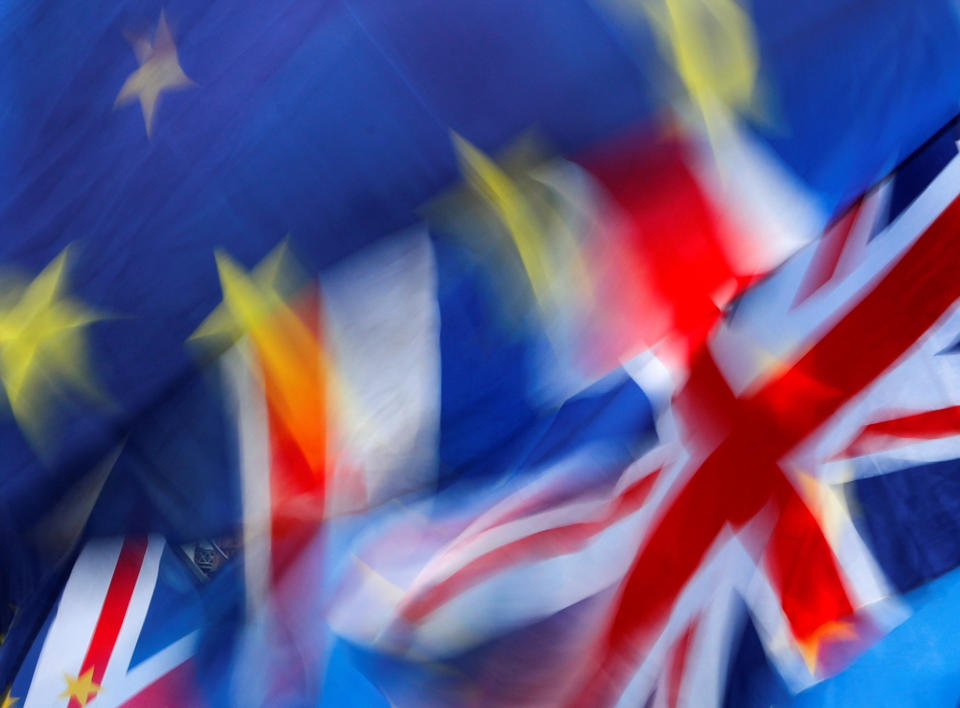'Disorderly Brexit' likely to hit UK economy in short and long term

“A disorderly Brexit would be likely to lead to lower economic growth in the short and long run,” says major thinkthank Institute for Fiscal Studies (IFS).
In its latest report, The outlook for the 2019 Spending Review, the IFS outlined why a no-deal Brexit, which is when the UK crashes out of the European Union without a deal in place, will hit the UK economy over a long period of time.
Previously, a number of supporters of a hard Brexit, in and outside the government, have claimed that even though a disorderly Brexit may lead to some disruption to the economy in the first instance, there would not be longer term repercussions because Britain would have sealed trade deals and forged its own way ahead. However, the IFS outlined exactly why a no-deal Brexit is hugely damaging to UK economic growth.
It points out that supply and demand will be hugely susceptible to Brexit — whatever the deal looks like. So a “a disruption associated with a ‘no-deal’ Brexit would affect the supply side of the economy – for example, by increasing costs for businesses that import and export.”
It adds that “a shock of this nature could also affect demand by reducing both business and consumer confidence.” In other words, a no-deal Brexit would hit two components that are vital to economic growth — people spending and businesses being comfortable at investing and expanding their companies.
If this was to happen, the IFS said that “inflationary pressures would be more likely to emerge.” This could mean a cut in the value-added-tax (VAT) rate — currently the standard rate being at 20%, it’s the tax businesses put on goods and services. While this may stimulate people by goods and services, as a cut in the tax rate would be cheaper, it will mean lower tax of this kind coming into the government’s budget. It would also “not address the underlying structural issues, and thus might not be appropriate in the way that it was back in 2009 in the aftermath of the financial crisis,” said the IFS.
The thinktank also pointed out that a stimulus package could also be implemented, in order to boost investment, either through “public investment or through measures aimed at boosting business investment.”
READ MORE: UK auto industry on ‘red alert’ amid growing no-deal Brexit threat
But interestingly, the IFS pointed out that chancellor Philip Hammond has put these somewhat in place, suggesting he “is already worried about business investment being subdued during 2019 and 2020 (and is less worried – at least at the moment – about it being subdued after December 2020).”
Last month, UK business investment suffered its biggest fall in three years due to Brexit uncertainty. The International Monetary Fund also said in November that the Brexit process has affected business investment in the UK. It added that the UK economy faces a 8% hit on GDP in the long-run, if there is a no-deal Brexit.
READ MORE: Goldman Sachs increases its probability of a no-deal Brexit
Britain’s biggest business lobby group CBI, representing 190,000 firms, also released a study showing that 80% of companies say that Brexit has hit investment. And in September, the Office for National Statistics (ONS) revealed that businesses have invested £22bn less in the last two and a half years because of Brexit uncertainty.
Earlier this week, the Centre for European Reform said voting for Brexit has caused the economy to shrink 2.3% smaller than if Brits had voted to remain in the EU.

 Yahoo Finance
Yahoo Finance 
